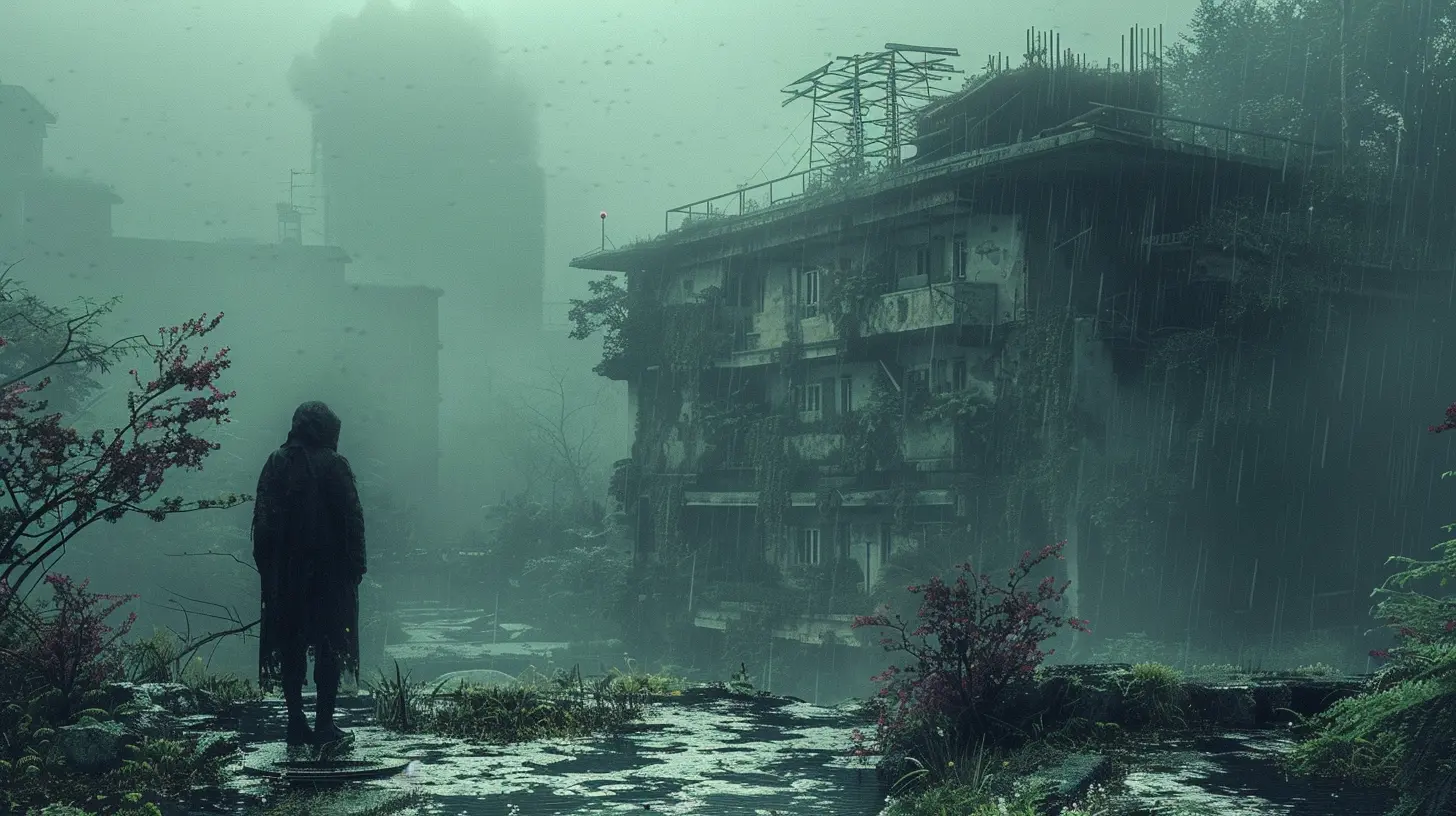Interpreting the Silent Protagonist in Modern Games
11 November 2025
Ever played a game where your character doesn’t say a single word, but somehow you still feel connected to them? That’s the magic of the silent protagonist. It’s a storytelling method that’s been around since the early days of gaming, yet it’s still alive and well in some of the biggest titles today.
So, what is it about these mute characters that keeps us hooked? Why do modern developers still choose to use them in an era where narrative and voice acting are more advanced than ever? Grab your controller, we’re diving deep into the world of the silent protagonist—and trust me, there’s more to this quiet hero than meets the eye.
What’s a Silent Protagonist, Anyway?
Let’s kick things off with a simple definition. A silent protagonist is exactly what it sounds like—a main character who doesn’t speak, or speaks very little, often leaving the dialogue to other characters around them. You’re them, but they’re also kind of... not there, at least vocally.This silent treatment doesn’t mean there’s no personality, though. In fact, some of the most iconic game characters of all time—like Link from The Legend of Zelda or Gordon Freeman from Half-Life—don’t say a single word. Yet, they resonate with millions of gamers across the globe.
Why Keep Quiet? The Purpose Behind the Silence
You’d think that with all the tech we have today—motion capture, cinematic cutscenes, dialogue trees—game devs would ditch silence in favor of full-blown personality. But silence still shows up regularly. Here’s why:1. Player Immersion
This is the big one. When your character doesn’t speak, YOU fill in the gaps. The idea is that you project your own thoughts, emotions, and reactions onto the character. It’s like a blank slate waiting for your interpretation.Think of the game world as a stage, and the silent protagonist as an avatar. You're not guiding a character through a story—you ARE the story. Every choice feels more personal because there's no canned line or predetermined personality to break your immersion.
2. Narrative Flexibility
Let’s face it: writing dialogue for a protagonist is tricky. You’ve got branching choices, different moral paths, and a sea of variables. A silent protagonist sidesteps all that.It keeps things cleaner. You can have other characters react as if you’ve spoken, while you, the player, imagine what you would’ve said. Kind of like playing a game of charades—awkward, but it works better than you’d expect.
3. Universality
Got players from different cultures, age groups, or genders? A silent protagonist can appeal to a broader audience because there’s nothing to alienate them. No accent, no regional slang, no awkward voice acting—just you and your imagination.
Breaking the Silence: When It Works (And When It Doesn’t)
Alright, so silence has its perks. But let’s not pretend it’s always the best choice. Like most storytelling tools, it works great in the right context—but can fall flat when misused.When It Works:
– The Legend of Zelda Series
Link has never been chatty, and that’s part of his charm. His silence makes him a vessel for the player. You're not watching Link save Hyrule; you're saving Hyrule. Nintendo leans into his quiet nature by surrounding him with expressive, talkative characters to fill the gap.– Half-Life
Gordon Freeman is the ultimate silent observer. He never utters a word, but everything happens around him. The player feels like they are Freeman, caught in a world that assumes you’re just going with the flow. The silence makes the chaos even more intense.– Dark Souls Series
Okay, you don’t even have time to talk in Dark Souls. You’re too busy trying not to die. But that absence of voice fits perfectly with the atmosphere—lonely, mysterious, and oppressive. You become the wanderer in an unforgiving world.When It Doesn’t Work:
– Fallout 4 (Before Voice Acting)
In older Fallout games, your protagonist never spoke. It mostly worked—until decisions got complex enough that players wanted more nuance to their character. Eventually, Bethesda gave in and added voice acting in Fallout 4. And even then, some fans missed the silent charm of earlier titles.– Skyrim
Yeah, we love Skyrim, but let’s be real. The Dragonborn being completely silent while everyone else is delivering Shakespeare-level monologues? It’s a little jarring. Especially when you’re supposed to be the chosen one. A little voice would’ve gone a long way.
The Psychology of Silence: Why We Connect With Mute Characters
This part might surprise you. There’s actual psychology behind why we connect with silent protagonists more than we think.The “Blank Slate” Effect
It’s called the Proteus Effect: we tend to take on characteristics of our avatars in digital spaces. So if your protagonist is silent and undefined, you’re more likely to imprint your own identity onto them. It’s like a mirror that reflects who you are rather than telling you who the character is.Emotional Projection
Ever notice how silent protagonists often get more emotional reactions from players? That’s because you’re filling in the blanks. Your brain's doing extra work to empathize—like reading a book versus watching a movie. It’s more personal, more intimate.Silent But Not Soulless: Injecting Personality Without Words
Just because a protagonist doesn’t talk doesn’t mean they’re lifeless. The best games give silent characters tons of personality using other tools:- Body language: A shrug, a nod, a subtle head tilt—it says more than words ever could.
- Choice systems: Your in-game decisions shape how you see your character, even if they never say how they feel.
- Environmental storytelling: Often, it’s the world you react to that shapes your character. A ruined city, a tragic diary entry, a haunting melody—your reaction defines who your character is.
Remember Journey? Your robed character never speaks, but their movement, their isolation, and eventual companionship with another player says so much without saying anything at all.
The Future of the Silent Protagonist in Gaming
So where do we go from here? Are silent protagonists going extinct? Not quite.Today’s game devs are smarter about how and when to use silence. Some games offer voice options—you can choose between a vocal avatar or a silent one. Others blend silence with occasional voice lines, especially during high-stakes moments.
Hybrid Models
Games like Cyberpunk 2077 or Mass Effect offer fully voiced protagonists, but with player-driven choices. You still shape the personality, but the character has a voice (literally and figuratively).On the flip side, indie games are reviving the silent protagonist in creative ways. Titles like Hyper Light Drifter or Inside do so much with so little. The silence becomes part of the experience, not a design limitation.
Should More Games Use Silent Protagonists?
Here’s the million-dollar question. And there’s no one-size-fits-all answer.If the story is deeply emotional, character-driven, and relies on specific moral complexities, giving the protagonist a voice can enhance the experience.
But if immersion, mystery, or universal appeal is the goal, then silence might just be the loudest voice in the room.
Final Thoughts: Silence Is Golden (Sometimes)
Silent protagonists are weird, wonderful relics that’ve stood the test of time. They challenge traditional storytelling, flip player expectations, and let us play as ourselves, not just a character.Sure, they’re not perfect. They can come off awkward or underdeveloped if not handled right. But when done well? They create some of gaming’s most unforgettable experiences.
So the next time you boot up a game and your character stays silent—don’t rush to judge. That quiet might just be your voice waiting to speak.
all images in this post were generated using AI tools
Category:
Game NarrativesAuthor:

Greyson McVeigh
Discussion
rate this article
1 comments
Natalia Luna
The silent protagonist serves as a powerful narrative device, allowing players to project themselves into the character's journey. This ambiguity fosters immersion and personal connection, yet risks emotional detachment. Modern games must balance player agency with storytelling depth to truly resonate with diverse audiences.
November 22, 2025 at 5:24 AM

Greyson McVeigh
Thank you for your insightful comment! I agree that the silent protagonist offers a unique way for players to immerse themselves in the story while also presenting challenges in emotional engagement. Balancing player agency with rich narratives is indeed crucial for resonating with a diverse audience.


